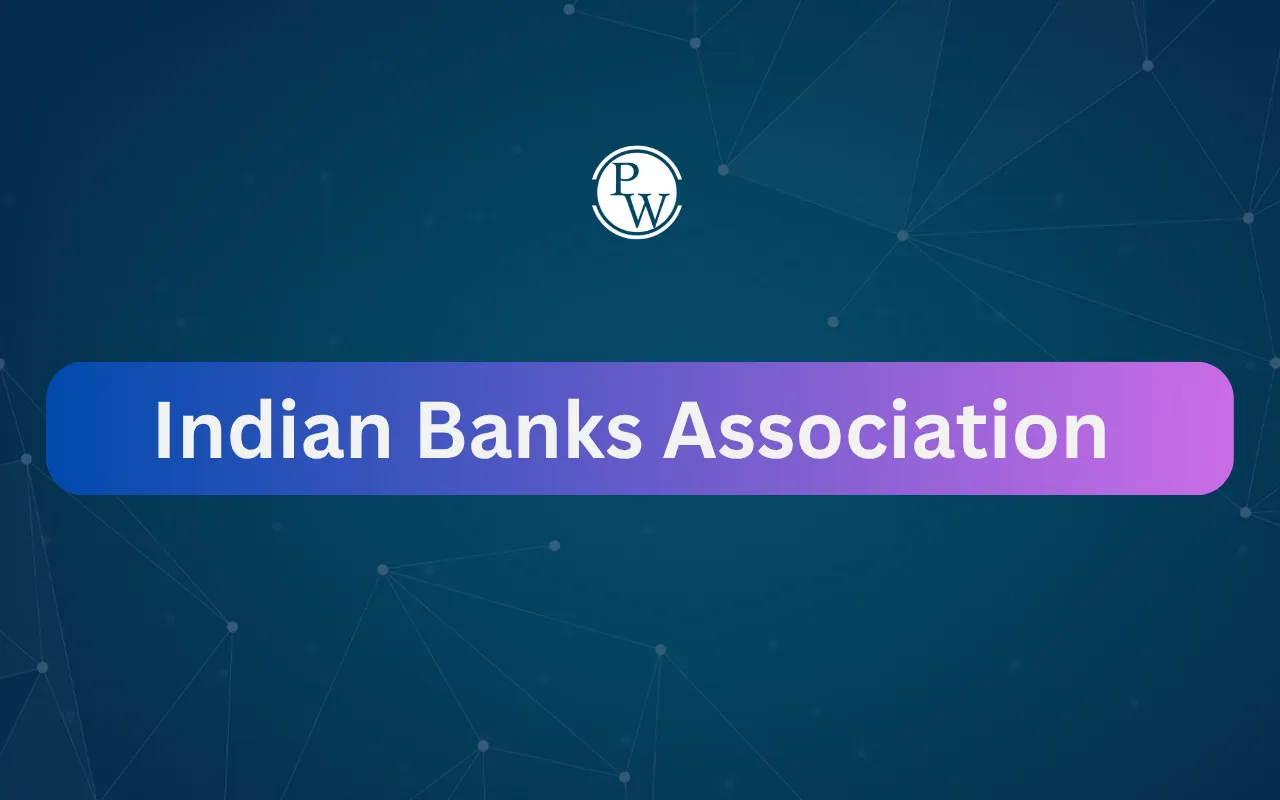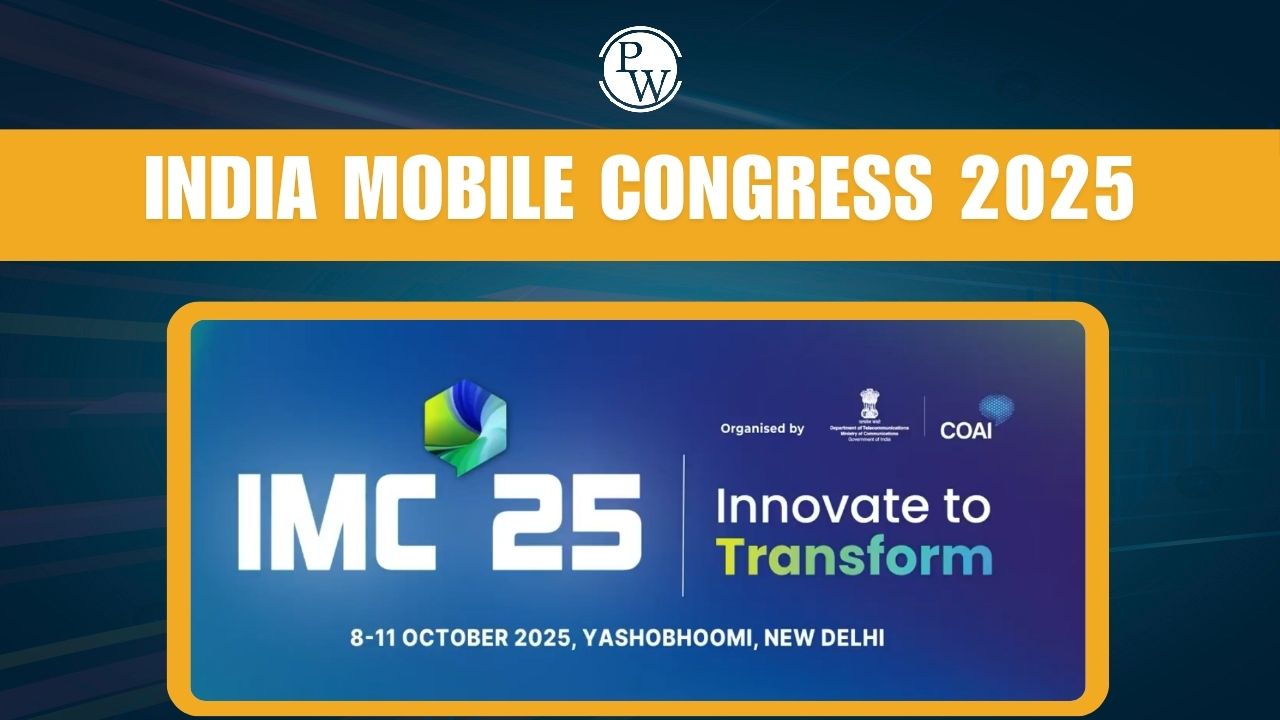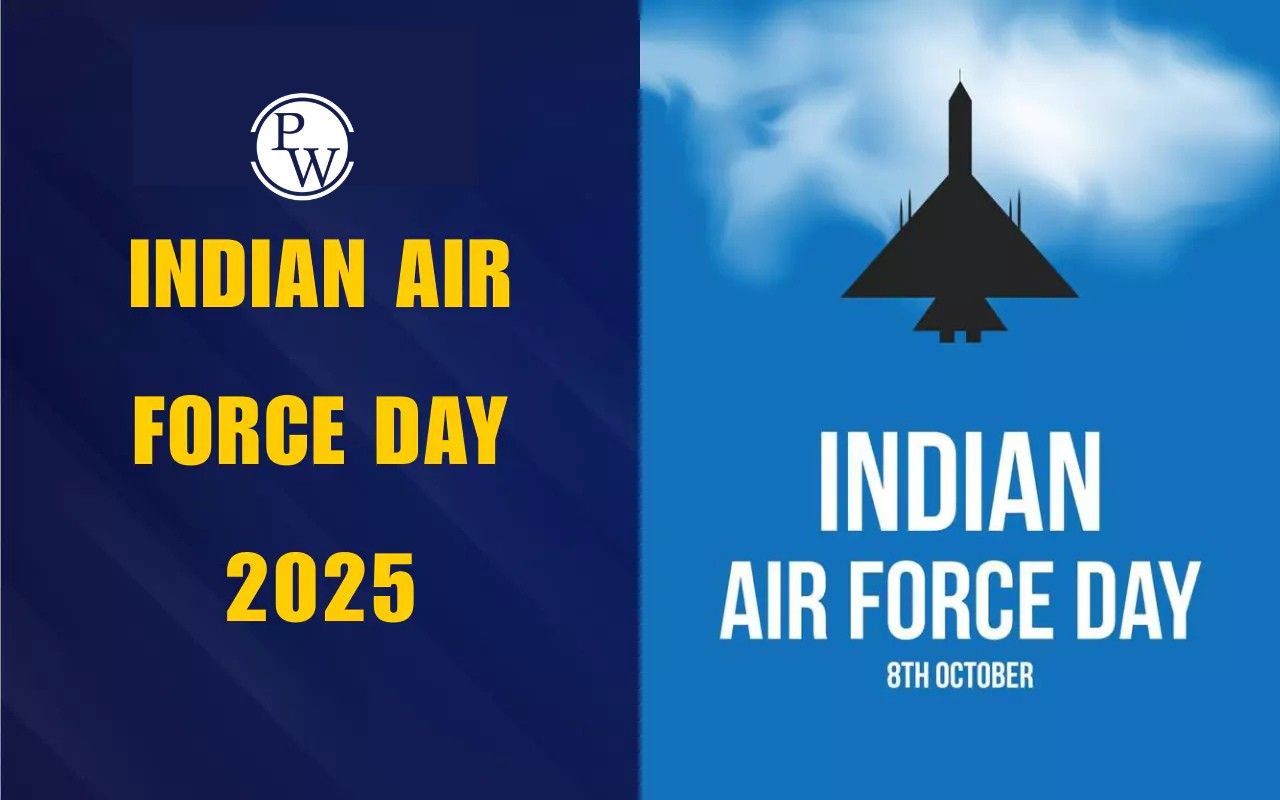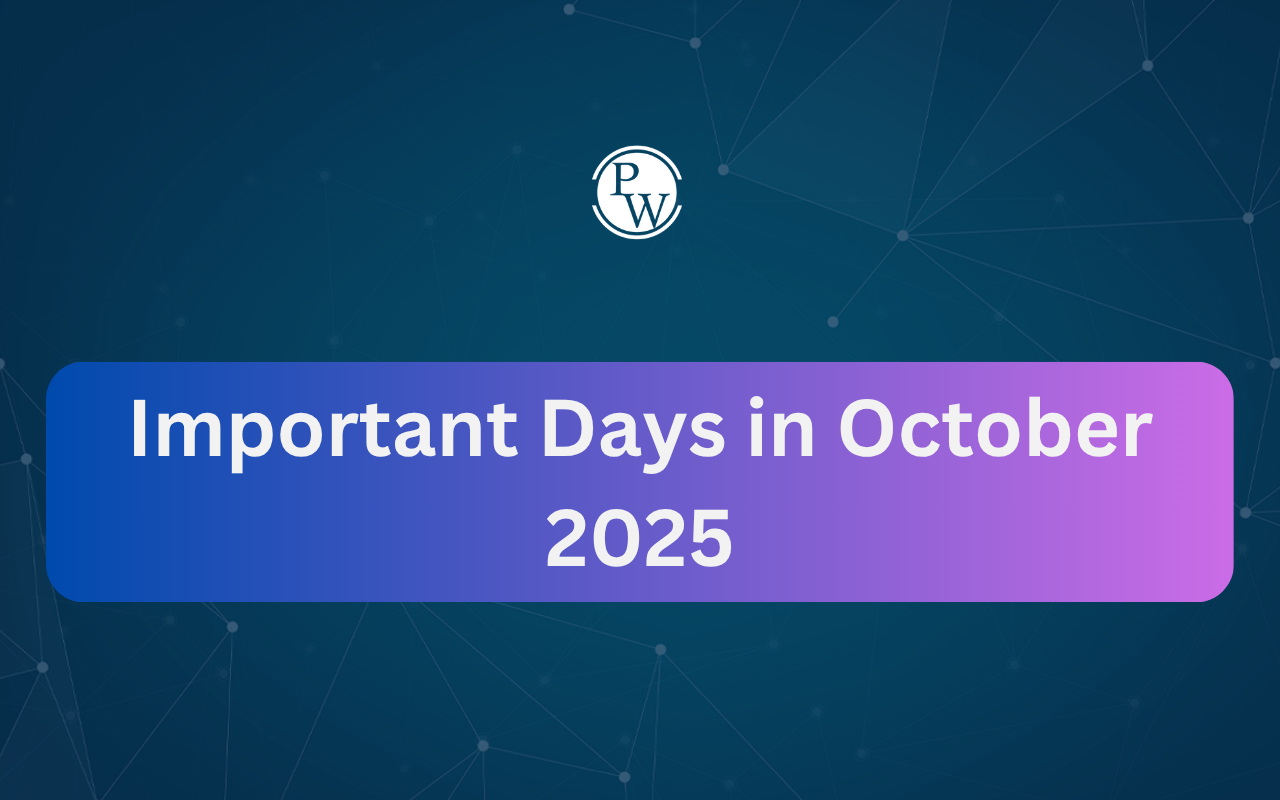
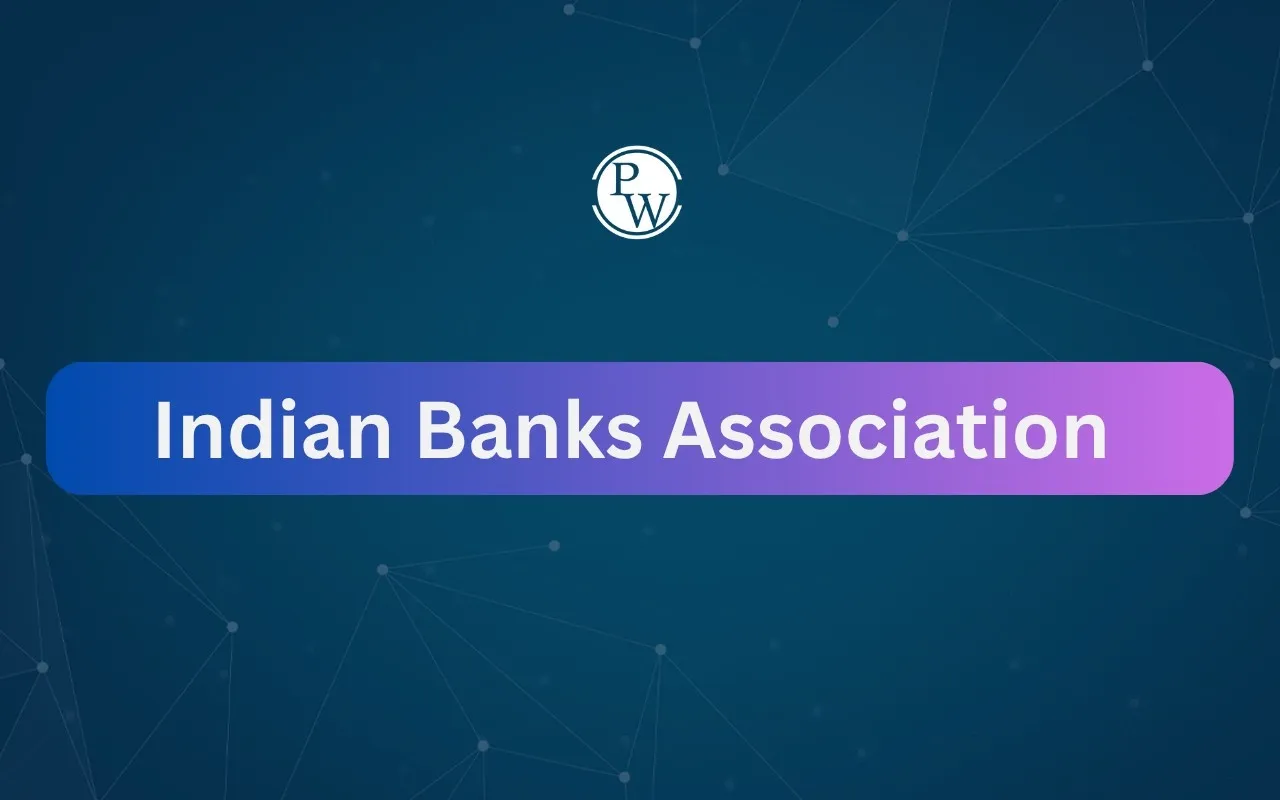
Indian Banks Association is a voluntary organization of banks and financial institutions in India, established in 1946 and headquartered in Mumbai. It acts as a representative body for the banking sector, promoting coordination among member banks, standardizing banking practices and supporting the overall development of the Indian financial system.
The IBA also acts as a bridge between banks and regulatory authorities, provides a platform for discussion and policy advocacy and works to enhance efficiency, transparency and trust in India’s banking industry.
Indian Banks Association Overview
Indian Banks Association is an important organization in India banking sector, representing banks and financial institutions across the country. It focuses on promoting coordination, standardization and the overall development of the banking system.
|
Indian Banks’ Association Overview |
|
|
Feature |
Details |
|
Full Name |
Indian Banks’ Association |
|
Founded |
26 September 1946 |
|
Headquarters |
Mumbai, Maharashtra, India |
|
Type |
Voluntary association of banks and financial institutions |
|
Purpose / Objectives |
- Promote coordination among banks - Standardize banking practices - Support development of the banking sector - Policy advocacy and representation - Enhance transparency and efficiency in banking |
|
Membership |
- Public Sector Banks - Private Sector Banks - Foreign Banks operating in India - Co-operative Banks - Regional Rural Banks (RRBs) |
|
Governing Body |
Managing Committee comprising: - Chairman - Deputy Chairmen - Honorary Secretary - Members |
|
Current Chairman |
Challa Sreenivasulu Setty (Chairman of SBI) |
|
Major Initiatives |
- Indian Banks Auctions Mortgaged Properties Information (IBAPI) portal for property auctions and NPA resolution |
|
Legal Status |
Voluntary association; not fully under RTI Act, but CIC directed compliance (under legal review) |
|
Website / Portal |
www.iba.org.in |
Indian Banks Association Chairman
Chairman of Indian Banks Association is the highest authority in the association, responsible for providing leadership, guiding policies and representing the collective interests of India’s banking sector. As of 2025, Challa Sreenivasulu Setty the Chairman of the State Bank of India (SBI), holds this position. The Chairman oversees key initiatives such as resolving non-performing assets (NPAs), promoting digital banking and ensuring transparency and efficiency across member banks, working closely with the Managing Committee to strengthen India’s financial system.
Indian Banks Association Property Auction
Indian Bank Association also conducts property auctions mainly to resolve the problem of non-performing assets (NPAs). The IBA also offers a centralized system, which is the Indian Banks Auctions Mortgaged Properties Information (IBAPI), through which the information about the properties confiscated by defaulting loans is auctioned publicly.
This initiative enhances transparency, helps banks recover dues from defaulters and provides potential buyers an opportunity to purchase properties at competitive prices. The IBAPI portal reflects IBA commitment to modernizing banking practices and ensuring fair and efficient recovery processes across the sector.
Indian Banks Association Objectives
The Indian Banks Association has a set of objectives aimed at promoting a strong, efficient and ethical banking sector in India:
-
Encourage Innovation – Support new ideas, modern approaches and creative solutions in banking operations.
-
Promote Ethical Practices – Ensure banks follow progressive, responsible and transparent practices.
-
Drive Operational Excellence – Improve customer service, internal procedures and overall efficiency in banking.
-
Facilitate Cooperation – Help banks work together to solve legal, technical, and administrative challenges.
-
Data and Knowledge Sharing – Collect, organize, and share banking data, financial statistics and insights for informed decision-making.
-
Research and Analysis – Conduct studies on banking trends, business models, workforce development and leadership practices.
-
Banking Education – Promote awareness of legal frameworks, compliance and industry best practices.
-
Information Exchange – Enable banks to share credit-related information, market intelligence and expert opinions.
-
Strengthen Public Image – Enhance the reputation of banking as a reliable, service-driven sector.
-
Promote Healthy Workforce Relations – Foster positive employer-employee relationships and engage staff in the growth journey.
-
Collaborate with Key Institutions – Build strong ties with the RBI, financial institutions, business chambers and academic bodies to support the sector overall development.
Indian Banks Association Issues
Despite being a key organization in India banking sector, the Indian Banks Association faces several challenges related to transparency, accountability and legal status:
-
RTI Act Compliance – The IBA claims it is a voluntary association, not a statutory body and therefore argues that it is not covered under the Right to Information (RTI) Act, 2005. It has not appointed a Central Public Information Officer (CPIO), which is mandatory for public authorities.
-
Transparency Concerns – While all public sector banks (PSBs) and some private banks fund the IBA, the association does not disclose its financial records, including revenue, expenditure or budget allocations. This raises questions about how taxpayer-backed funds are being utilized.
-
Legal Status Ambiguity – The IBA asserts that it is not subject to judicial review mechanisms applicable to public bodies. This creates ambiguity over its accountability, especially since many of its decisions directly influence public banking services.
-
Public Sector Bank Influence – Although the IBA has over 240 members, public sector banks (PSBs) play a dominant role, and their top management is appointed by the government. This creates a situation where the IBA’s operations are heavily influenced by government-backed institutions yet remain outside public scrutiny.
-
Challenges in Accountability – Several legal challenges have arisen regarding whether the IBA should be treated as a public authority under the RTI Act. The Central Information Commission (CIC) ruled that it qualifies as a public authority, but the IBA contested this in the Delhi High Court and the matter remains unresolved.
Indian Banks Association Case and R K Jain
Although the Indian Banks Association identifies as a private, voluntary body, several legal issues have been raised regarding its accountability and public functions. The IBA undertakes key roles such as policy coordination, wage negotiations and representing the banking industry. Many of its decisions have a direct impact on how public banking services operate in India.
Recognizing this, the Central Information Commission ruled that the IBA qualifies as a public authority under the RTI Act, 2005. The CIC noted that the IBA functions similarly to a state agency, particularly because it is largely managed by the Managing Directors of Public Sector Banks who are appointed by the Government of India. The CIC directed the IBA to appoint a Central Public Information Officer (CPIO) and comply with proactive disclosure requirements under Section 4 of the RTI Act, including publishing details about its structure, functions and finances.
In response, the IBA filed a writ petition in the Delhi High Court. The High Court stayed the CIC order, observing that the IBA has 241 members, of which only 9 are Public Sector Banks.
As of now, the matter remains legally unresolved. Despite being largely funded by banks that manage public money, the IBA continues to operate outside the scope of the RTI Act, raising ongoing questions about transparency and accountability.
